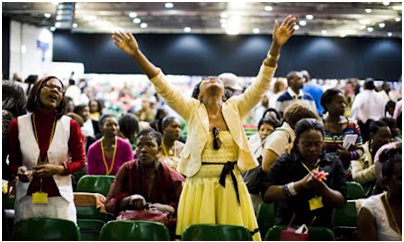ADVOCATES / ARBITRATORS / NOTARIES PUBLIC

Publications
By Theresa Okoye
Africans are the noisiest people in the world. That is a cliché. I do not know the author of that axiom but I am aware that Nigerians live with and tolerate a high level of noise. Imagine the itinerant preacher screaming and ringing a bell at 4.00am: “Repent ye sinners for the kingdom is near at hand”. He is oblivious of the fact that everyone, (including sinners) is entitled to peace and quiet! Churches and Mosques generate a lot of noise. A Street in my neighbourhood has three churches. These churches have massive loud speakers and sometimes, preaching goes on simultaneously; they equally use very loud musical instruments and generating sets. Friday nights are worse: vigils are held from dusk to dawn, residents are subjected to excessive noise. Those who complained to the church authorities were labeled “enemies of progress” and “agents of the devil”. These activities cause noise pollution.
Pollution refers to man-made or man-aided alteration of chemical, physical or biological quality of the environment beyond acceptable limits. Noise is an unwanted sound. It does not matter where it comes from either religious place of worship, or markets. We are entitled to freedom of religion. This is enshrined in Section 38 of the 1999 Constitution “Every person shall be entitled to freedom of religion….. to manifest and propagate his religion or belief in his worship, teaching, practice and observance”.
However, while we exercise our constitutional rights, we should ensure we do not cause noise pollution.
Some religious places of worship are situate in residential areas. It is important that worshipers take cognizance of the fact that noise generated during the cause of worship, has many adverse effects. These include: injury to the ears, permanent loss of hearing, anxiety and stress which may lead to fright, it also causes disturbance in nervous system of unborn babies and leads to emotional disturbance along with abnormal behaviour. It can also increase cholesterol level in blood.
We can combat noise pollution, by ensuring that our religious places of worship are sound-proof.
It is unlawful to cause noise pollution, this is because apart from its adverse effects, it violates our constitutional right to the environment; as enshrined in Section 20 of the 1999 Constitution which provides that it is the duty of the State to protect and safeguard the environment from pollution.
Some pro-active states like Lagos State, has taken the lead in the fight against noise pollution. Recently, officials of the Lagos State Environmental Protection Agency (LASEPA) shut three churches and two mosques within the metropolis for violating the laws of the State against noise pollution. Residents had complained about the blazing noise pollution from the churches and mosques.
The affected places would not be opened till they comply with the relevant laws.
The Indian Constitution also recognizes its citizens’ right to environment. In the case of Church of God (Full Gospel) India V KKR Majestic Colony Welfare Association (2000). The Supreme Court of India held that excessive noise emanating from the Church loudspeakers violated the right to environment recognized under the India Constitution.
Everyone has a right to the environment. Let us not engage in noisy worship!
(Okoye is a Legal Practitioner. She works with Fides Law Practice, Port-Harcourt)
By: THERESA OKOYE,
A SOLICITOR AT FIDES LAW PRACTICE
22 AGUDAMA AVENUE,
BY WOGU JUNCTION,
DLINE,
PORT-HARCOURT,
RIVERS STATE.
Other Topics:
- Environmental Impact Of Gas Flaring
- Noisy Worship
- A critical analysis of various landmark decisions of the Supreme court that impacted fundamentally on the concept of the party System in Nigeria
- PRINCIPLE OF CRIMINAL RESPONSIBILITY AND EXCUSING CONDITION OF CRIMINAL RESPONSIBILITY WITH SPECIAL REFERENCE TO INSANITY & INTOXICATION
- THE ROLE OF DOMESTIC SUPPLY OBLIGATION AND PUBLIC SERVICE OBLIGATION IN PROMOTING ENERGY SECURITY.
Home │ The Firm │Practice Areas │ Our Team │Properties│ Publications│ Contact Us
Copyright © Fides Law Practice. All rights reserved.
(Powered by Kingszino Computers)
